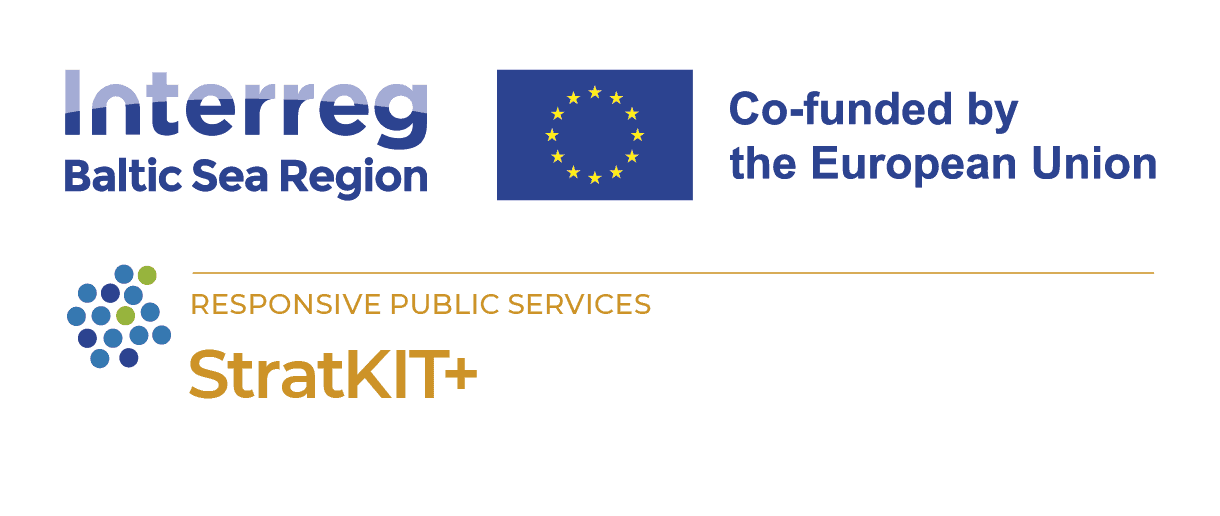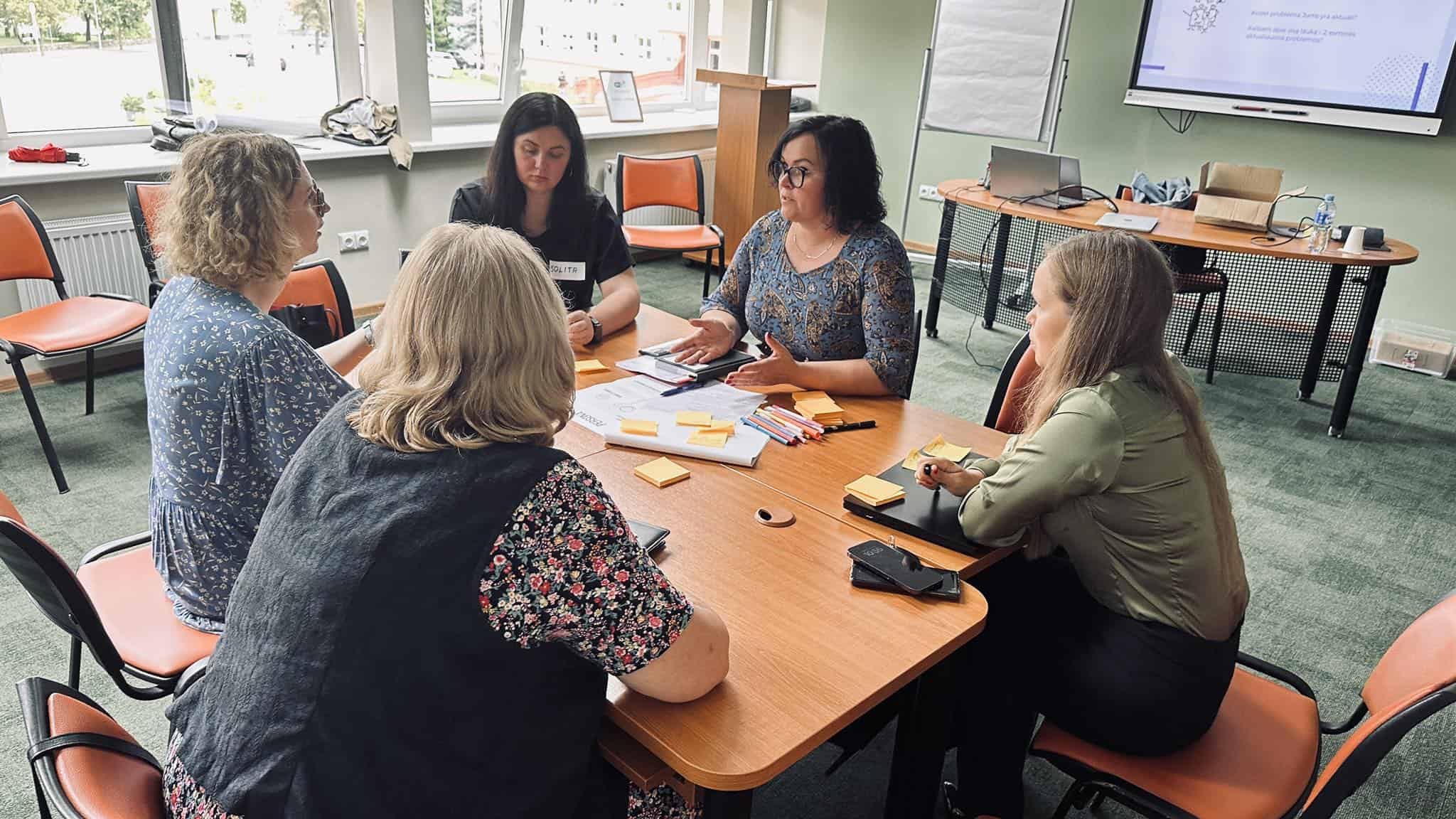
“Know your alternative operators” – Developing crisis management through National Stakeholder Workshops
28 September 2023
The main goal of the workshops was to obtain feedback to the Action Plan and new tools that are now being added to the toolkit. Workshop participants received the drafts of the Action Plan and Collection of new tools in advance, which enabled a fruitful discussion among the stakeholders. The material for the workshop was prepared
The workshop participants represented the key target groups of the project, mainly public procurement and public meal providers. Additionally, there were also NGO and Ministry representatives, municipality employers, social workers and educational representatives present in the workshops.
In Lithuania, the workshop was organized live by StratKIT+ partner Lazdijai District Municipality Administration. Participants were divided into working groups in which they took part in active exercises to identify tools needed for different food crisis situations, what concrete measures would be needed and how the crisis management tools could help solving and preparing for the crisis situations. The participants also identified personal strengths and weaknesses regarding the crisis situations which was seen useful when preparing and implementing the crisis management action plan.
In Finland, the online workshop provided important insights related to the geographic distances that affect to the public kitchen stakeholders. Long distances and limited selection of providers have a big impact on the supply chain of the products especially in rural areas. The discussion of the supply chain led into recognizing the importance of local and alternative suppliers and operators. The stakeholders also pointed out differences related to internal and external crisis situations and how it affects the scale of the action plan. Some of the external crises (e.g. covid19 and electricity shortages) have revealed the importance of close collaboration with other relevant stakeholders.
All the feedback gained from the workshops helped to further develop the expansion of the sustainable public meal toolkit (SPMT+) with special focus on the crisis management tools and action plan. The action plan was recognized as something the stakeholders need and want to develop for their own preparedness needs. The plan was seen useful for identifying vulnerabilities and motivate preparing for the crisis situations. The stakeholders also pointed out questions related differences between internal and external crisis situations and how it affects the scale of the action plan. In most of the workshops interfaces and development of the supplier network was seen as one of the key factors of the action plan.
All in all, the workshops were a great way to reconnect with our local project stakeholders, share new knowledge about the toolkit and invite new stakeholders to join the SPMT+ community!










